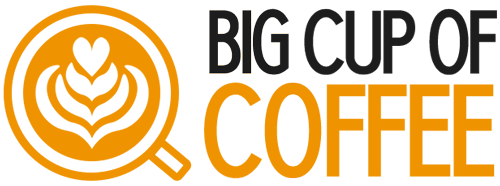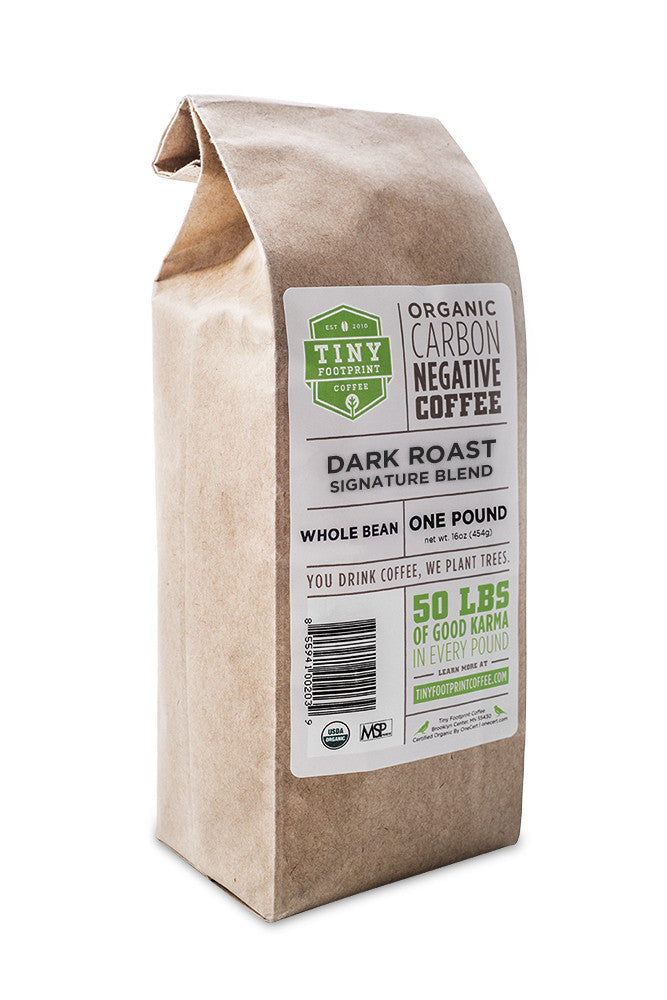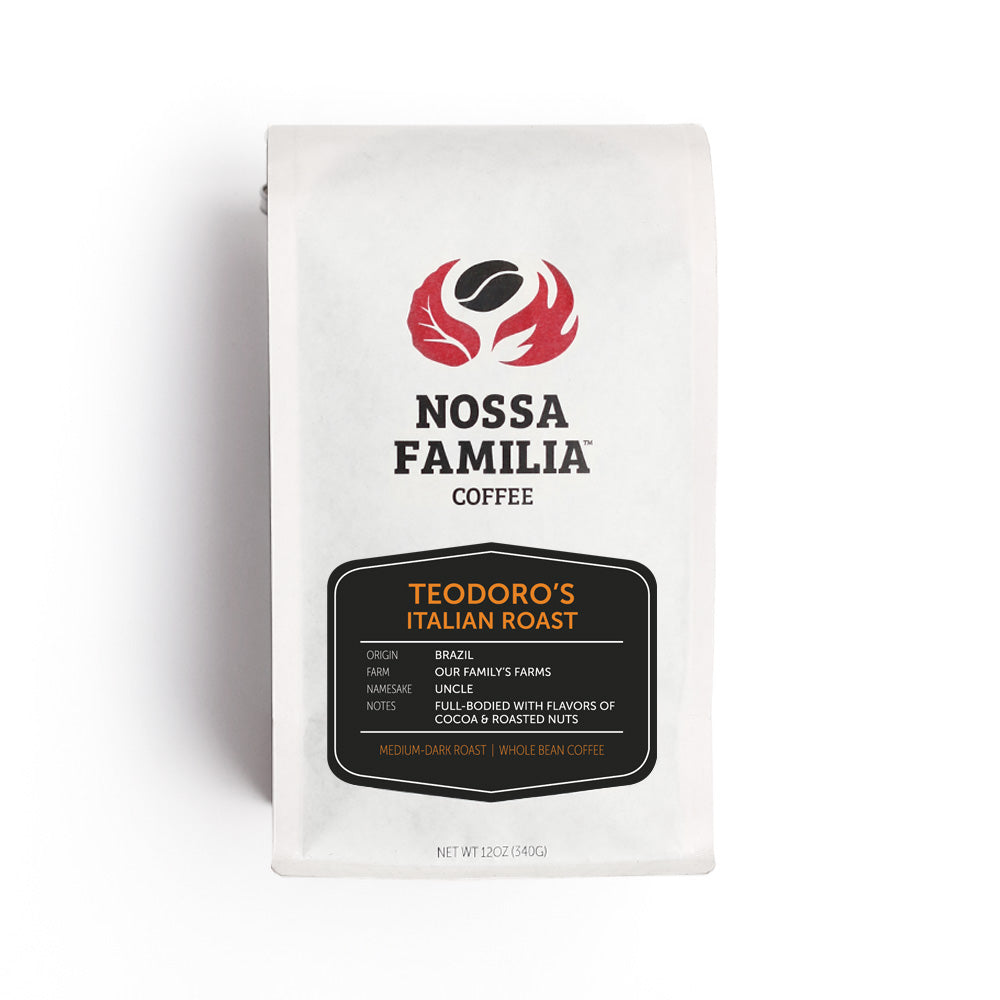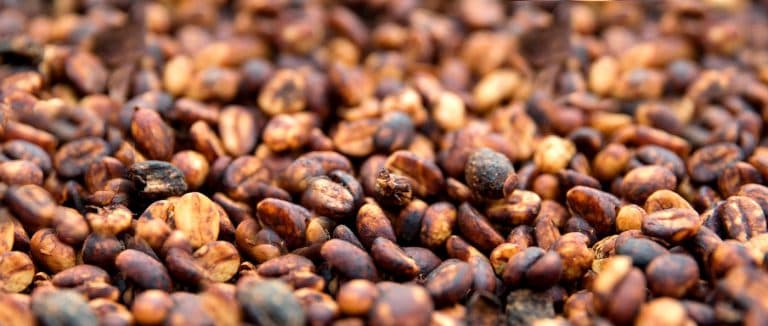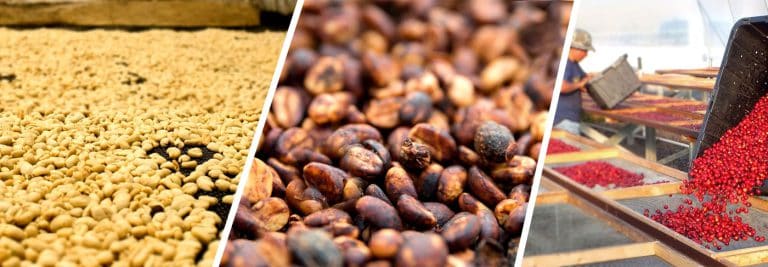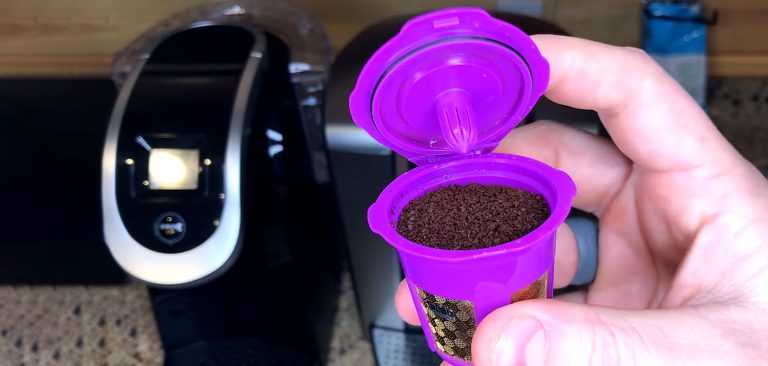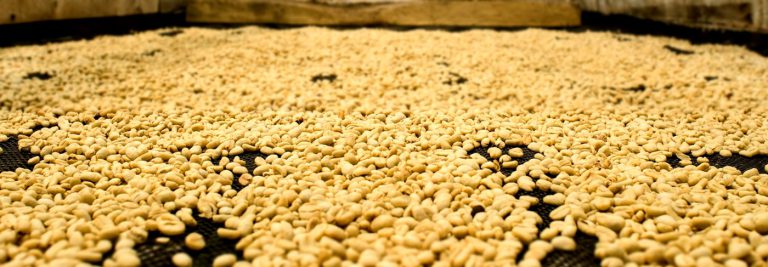What is Direct Trade Coffee and Where Can You Find It?
Imagine the source of your cup of coffee. It travels all the way from the tropics to your favorite cup in sufficient quantities to keep you full of caffeine…all the time, if you want. That’s pretty amazing in itself, but Direct Coffee, which we’ll discuss in this article, is about making the trip from rainforest to cup as simple as possible.
What is Direct Trade Coffee?
So what are we doing in all types of business these days? Trying to take out the middle women (and men). Direct Trade is just another example of this. It’s a very different method, or ideology even, which focuses on creating a bridge between the coffee consumer and the growers. It’s about abbreviating the supply chain and buying direct. This way, coffee producers get better value for their crops, and consumers get quality specialty coffee.
When you buy from a company or roaster that trades directly, you are often buying into organizations with development at the heart of what they do. If there’s one specific problem with the industry today it is how indirect the supply chain is. This can result in unfairly low prices which have a devastating effect on communities. Large companies can easily exploit farmers, and as their buyers trade to exporters who trade to importers, profits are further decreased.
In this sense, direct trade creates a social bond between communities and roasters, without the need for importers. This can result not only in improved ethical sourcing but also allows farmers to learn different methods to create new products.
These bonds take years to create, however, and a lot of companies don’t take the time needed to achieve this.
Why is Direct Trade Important?
Direct Trade is a new way of trading with growers in developing countries. Fairtrade has brought many advantages, but like any system – it has its flaws. There have been various reports of these problems in the news.
Direct Trade is an attempt to construct a better system, which doesn’t allow smaller farmers to fall through the cracks.
Another goal is to address power imbalances within the systems of trade that currently exist. Ultimately, this can improve the lives of the farmers and create better-tasting coffees – otherwise known as a win-win situation.
Roasters have to put time and effort into finding a producer and forming a long-term relationship. These close relationships allow for greater transparency, and sustainability, and can greatly benefit the producers.
Some companies may be using this as a marketing ploy, but ultimately the movement is heading in the right direction. When there is no better alternative, taking a step in the right direction is better than nothing after all. Buying from direct trade roasters may genuinely benefit local communities and contribute to development in the long term.
Cost Difference?
To put price into perspective, the transportation of coffee costs about $0.50 per pound. Then you have the roasting costs at around $6.00 per pound. Roasting also brings related costs such as labor, which further raises the price.
So with this in mind, you can consider buying a pound of coffee for $10.00, leaving $3.50 per pound for producers after production and supply chain costs. That won’t be direct coffee.
So, what I am getting at (not so subtlety) is that by buying direct coffee you are paying a fair price to the farmer and is therefore more expensive than regular coffee. This more ethical bag of coffee will set you back more in the range of $15-20 per bag.
If you want to drink stuff from the tropics without screwing people over, you have to part with those $5-10.
Does it Taste Better?
Fortunately, you get what you pay for. It isn’t just ethical, you get value for your money. One of the main advantages of direct trade is that it incentivizes the farmers to grow better coffee. The direct relationship means coffee producers can ask for what people want, and the producer who grows it for them makes more money. A perfect free-market union!
Direct trade has even made the news recently. The Guardian newspaper describes a workshop designed to train growers in Guatemala to assess the coffee they produce for more than just imperfections. They can actually learn to select for “complex sensory attributes”. The idea is to raise the bar for specialty coffee, which ultimately means to make it taste nicer.
So you get a delicious Arabica bean, and coffee roasters committed to quality and transparency. The ingredients are there. You also get that direct relationship between coffee roasters and producers, where they will literally visit each other in their respective countries. The result is that you are buying world-class and ethical coffee.
Benefits of Direct Trade
Transparency and Fairness
Direct Trade avoids the situation where the coffee goes from local producer to exporter to importer to roaster to consumer – ok breathe. Now we, in theory, know who’s involved and they can keep the communication open – aka. transparency.
This model also takes money out of the hands of unnecessary intermediaries and into the hands of local producers. “Isn’t fair trade already treating the producers well?” you ask. We’ll get on to that in just a moment.
Sustainability
Whilst Direct Trade is not a protected trademark (more on that later), the ethos of this way of working is generally sustainable. Roasters may have to take a lot of risk and invest time and money in order to make direct trade work long term. Their motives are – again in theory – to have a positive impact on the industry and foster sustainable methods.
Since quality often goes hand-in-hand with sustainability (see our article on shade grown coffee) these organizations are heading in the right direction. You should always do some research into your chosen brands to check that they are doing their part to support growers and have a positive environmental impact.
High Standards
Similarly, direct trade doesn’t guarantee high standards but it is a good indication. One of the main reasons roasters go to great lengths to create these direct relationships is to ensure good quality coffee. As previously mentioned, some programs even teach local farmers methods to attain ever greater quality and build an ever-more profitable business in the long term. In this sense the drive for high quality raises standards across the board, as sustainability is a natural byproduct of this system.
Good for Small Farms
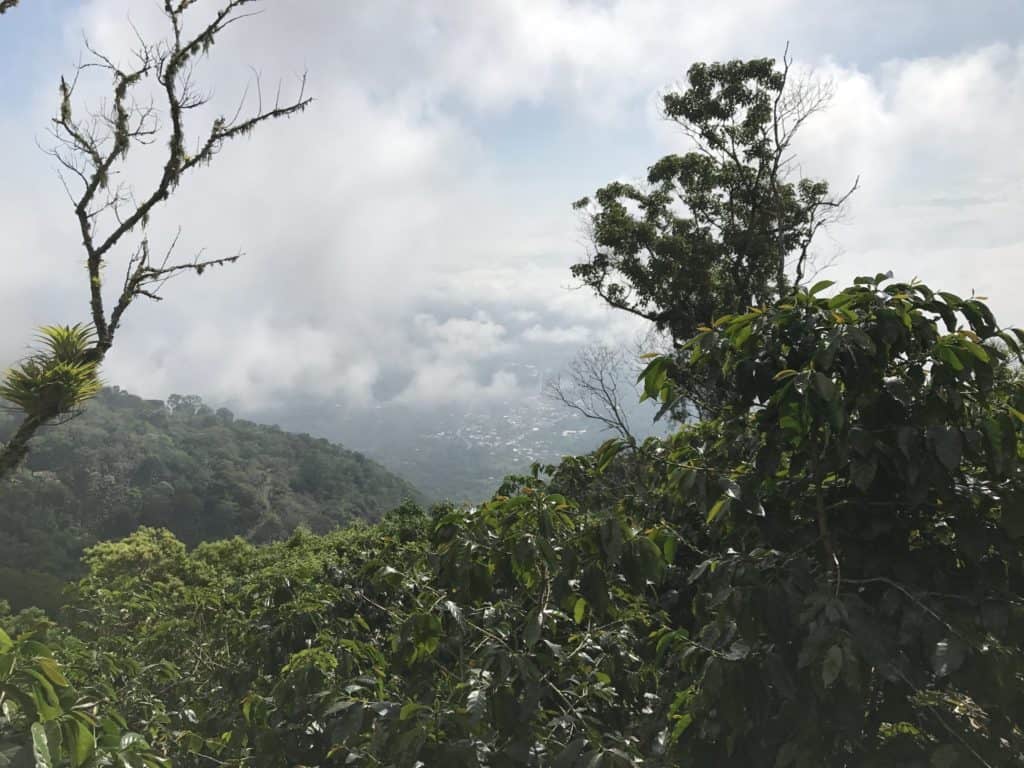
Buying into the fair trade system isn’t an option for everyone. Fair trade certification isn’t free and is often out of reach for small farms. With the increased profit margins and emphasis on quality, this mutually beneficial system of trade allows the little guy to get a foot in the door. No bad thing.
With a solid social imperative, this type of trade can set the standard for small coffee farms. Farmers can sell their coffee at a decent price, and sell products of quality. This can free them from the poverty trap with the tools at their disposal.
Certification
Ah, therein lies the rub – to misquote Shakespeare. There is no formal trade certification. Much like other new initiatives like shade-grown coffee, the industry has not been able to formalize this relationship between producers.
What does this mean? Well, for a start there is no guarantee that the roasters claiming to be direct trade met any standards at all. This includes paying a fair price, ensuring sustainability, cutting out the long supply chain, or any of the other benefits already mentioned. Some companies could be using the name as a marketing trick, without truly trading directly.
None of this is different from many other industries, however. We can’t take all marketing as the gospel truth. It’s down to us to check up on companies and look for the types of proof they are offering.
Direct Trade vs Fair Trade
Everyone knows fair trade and everyone also knows that it’s better than…well, not fair trade. But what about if we compare it with direct trade? Here’s our article explaining the major differences.
The Fair Trade certification means:
- Companies are adopting environmentally friendly methods (rules can vary depending on where they are based).
- The producer is paid a set wage which is fair by local standards
- They must enforce healthy and moral business practices, which must include labor standards.
Fair Trade doesn’t mean:
- Growers profits are not reduced by intermediaries, such as exporters and collectives.
- A good standard of coffee is produced
Fairtrade is working on an addition that will guarantee quality, but this will not come into effect for some years. It is ultimately a brand, which promotes itself and can cost up to $3000 a year to be part of. This can exclude many poorer and more remote farmers. There is room for improvement with their sourcing methods and higher pay for the farmers is possible.
Direct trade means: (when done in line with its principles – not by any means a guarantee)
- More money for farmers. No money for middlewomen (and men). Intelligencia, a huge roaster based in the US, guarantees 25% more profit for the farmers when trading directly.
- Farmers who make fantastic coffee receive higher pay (more of a free-market ideology than fair trade).
- This model is a great profit incentive for small farmers to make more and improve their methods to produce specialty coffee.
Is Direct Trade the Solution?
These are not conflicting ideologies. In the end, the answer is simple: we need both. Neither system is without its issues after all. Direct models could be incorporated into the fair trade umbrella or formalized to rival fair trade as a certification. The first option would help consumers, as it is already a confusing market. Both options are great for the producer, who will be paid more for their work. Learning to use the public desire for great-tasting coffee to enhance sustainability seems to be a logical next step.
As it stands, direct trade is in its infancy. Sure, it’s a great idea, but no one has any guarantees they are really getting what they are being sold. For it to grow into what it could be, consumers need to know the product in the shop is living up to best practices. All products mean buyers have to enter into a trust relationship to some extent, but support in the form of industry monitoring is essential.
Best Direct Trade Brands
Here are our top picks for the best Direct Trade coffee brands:
Tiny Footprint Coffee, Minneapolis, MN
Tiny Footprint Coffee is a coffee roasting company dedicated to eco-friendly practices. They are recognized as the first coffee producer to achieve a carbon-negative status, emphasizing both sustainability and ethical labor standards. The company procures its coffee beans from dedicated farmers who prioritize the well-being of their coffee crops and the conservation of their surrounding environment. Additionally, Tiny Footprint Coffee ensures that its growers are compensated fairly and competitively.
This product is a bold, intense dark roast coffee with a viscous body, featuring a flavor profile that highlights bittersweet chocolate, nut, and fruit notes. It is made from 100% organic, shade-grown Arabica beans.
Fresh Roasted Coffee, LLC
Fresh Roasted Coffee LLC provides an array of coffees gathered from local growers in premier global coffee-producing areas. Their unique direct sourcing from the farms allows them to offer competitive prices, with free shipping on orders over $35. This approach ensures fair compensation for the farmers and cultivators who dedicate themselves to producing the high-quality coffee we savor daily.
A box of 24 single-serve Kona coffee pods, compatible with many K-Cup brewing systems. The coffee is a medium roast, Direct Trade offering from Hala Tree Farm in South Kona, Hawaii, with tasting notes of coconut and molasses.
Nossa Familia Roasters, Portland, OR
Nossa Familia Coffee, founded in 2004 by Brazilian Augusto Carneiro in Portland, Oregon, has its roots in family-run coffee farms in Brazil dating back to the 1890s. The company, Oregon’s first Certified B Corp coffee roaster, is dedicated to ethical sourcing and environmental stewardship, offering high-quality, farm-direct coffee from around the world. Nossa Familia emphasizes strong relationships, social responsibility, and a commitment to community and sustainability, reflecting its deep Brazilian heritage and passion for exceptional coffee.
Teodoro's Italian Roast is a medium-dark blend with a rich flavor profile, including cocoa, roasted nuts, caramel, woody spice, and almond hints.
It's designed for coffee enthusiasts, offering a full-bodied and flavorful experience, suitable for various brewing methods like drip or press pot. The coffee can be enjoyed black or with cream and sugar for a creamier taste.
Frequently Asked Questions (FAQs)
It’s a method whereby coffee roasters form a direct relationship and buy straight from producers in the developing world. They build these trust relationships over years, the theory being that this allows for greater quality and fairer prices for growers. The two main advantages are sustainability and better pay for coffee growers.
One major difference: fair trade is an official certification that is monitored and enforced. Direct trade, at the moment at least, is not. Therefore it is hard to know if you are getting what you are being sold. Fair trade guarantees fair business practices, fair prices for producers, and environmentally sustainable practices. One of the issues is that it does not guarantee the taste of the coffee. Direct trade indicates that the coffee went straight from the farm to the roaster. Many critics of fairtrade suggest this is something that they need to adopt as well. This is really what makes a Direct Trade product different.
Yes, in general. Fair trade coffee tries to prevent large corporations from paying below a certain – locally defined – amount. It also attempts to stop the reduction of environmental practices, which maintains the health of the land used by poor coffee farmers. Like any large system, it is not without its flaws, and some small farms may not be able to afford to buy in.
It works for some farmers. There are two main issues. In some cases, growers cannot afford the fees, which can go up to $3000 per year. Critics also point out that fair trade prices don’t always fluctuate with the market and can prevent competition.
Direct Trade But There’s a Catch
There’s a long way still to go in the world of Direct Trade coffee. It does highlight some deep inadequacies in the fair trade system, but without official monitoring of standards, we are left to take companies at their word.
Coffee is exported all over the world, but in most cases, the roaster makes the majority of the profit, not the people on the farm working to produce the raw materials. Consumers value products that are directly sourced from farms in many industries and coffee is no different. Whether they buy something on the shop floor, however, is frequently a factor of whether they can trust that the product meets the specific criteria they are looking for. In this case, this must include some guarantee of what a term signifies.
Fairtrade is not with problems though. It is a brand, and as such promotes itself and does have its commercial interests. This is the catch-22 of creating systems to monitor coffee production. It costs money to give these farmers certified status. This money has to come from somewhere, and so farmers end up paying the bill. Yes, they get more – in most cases – than on the open market, but they could get a much fairer share of the profits. The $3000 price tag to become Fairtrade certified also unfairly excludes small and remote farmers. These costs translate into lower profits for growers and Direct Trade often pays over a third more!
In theory, if we are to believe all the claims made by companies, Direct Trade is a great thing. Specialty coffee comes straight from the farm with no intermediaries – it’s a winning formula.
But you have to remember that since Direct Trade is not a protected term and does not have a third-party group to enforce or ensure the proper use of the label, the transparency and accountability of certain roasters using it can be questionable.
The emphasis on incredible coffees is something that is lacking from the fair trade model. In the longer term, companies that work with local farmers and teach them to achieve this superior quality are surely improving many lives and livelihoods.
